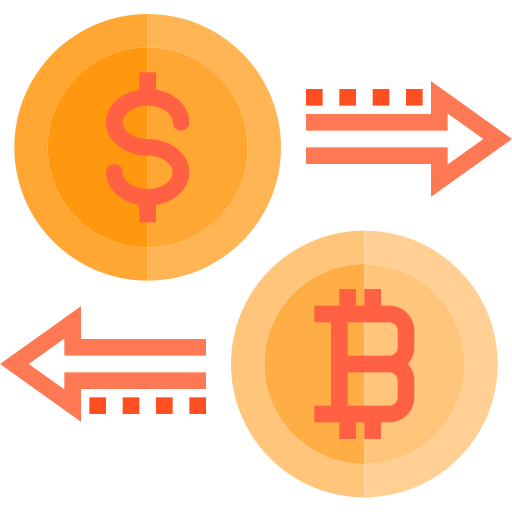
Bitcoin stands as the pioneer and most widely recognized digital asset. While centralized exchanges facilitate a significant portion of Bitcoin trading, a lesser-known yet equally important market exists the over-the-counter (OTC) market. This guide aims to demystify the world of OTC trading, providing insights into its unique dynamics and outlining steps for navigating these markets effectively.
Introduction to OTC Trading
Over-the-counter trading refers to the process of buying and selling assets directly between two parties, without the involvement of a centralized exchange. In the context of Bitcoin, OTC trading allows for large transactions to occur privately, often involving institutional investors, high-net-worth individuals, or entities seeking to minimize the impact of their trades on the broader market.
Step 1: Understanding Liquidity and Market Impact
One of the primary advantages of OTC trading is the ability to execute large orders with minimal impact on the market price. Centralized exchanges can experience liquidity constraints, especially during periods of high volatility, making it challenging to execute large trades without significantly affecting the asset’s price. OTC markets offer increased liquidity, allowing for smoother execution of substantial orders.
Step 2: Embracing Privacy and Discretion
OTC trading provides a heightened level of privacy and discretion compared to trading on centralized platforms. Institutions and high-net-worth individuals often prefer to keep their trades confidential, as large transactions can potentially influence market sentiment and attract unwanted attention. OTC desks facilitate these trades discreetly, protecting the identities and trade details of the parties involved.
Step 3: Accessing Personalized Service and Support
A key benefit of OTC trading is the personalized service and support provided by dedicated OTC desks. These desks typically employ experienced professionals who guide clients through the trading process, offering tailored solutions and addressing specific needs or concerns. This level of personalized attention can be invaluable, especially for those new to the OTC market or those executing complex trades.
Step 4: Conducting Due Diligence
As with any aspect of cryptocurrency trading, conducting thorough due diligence is crucial when selecting an OTC desk. Research the desk’s reputation, track record, and regulatory compliance. Look for desks affiliated with established financial institutions or firms with a proven track record in the OTC market. Additionally, prioritize desks that prioritize security measures, such as cold storage for digital assets and robust Know Your Customer (KYC) procedures.
Step 5: Assessing Liquidity and Trading Volume

Evaluate the liquidity and trading volume offered by the OTC desk. Reputable desks should have access to deep liquidity pools, allowing them to facilitate large trades efficiently. Additionally, consider the desk’s trading volume, as higher volumes often translate to better pricing and execution capabilities.
Step 6: Establishing Communication and Negotiating Terms
Once you’ve identified a suitable OTC desk, the next step is to establish communication and negotiate the terms of your trade. This typically involves discussing the desired trade size, asset type (Bitcoin, other cryptocurrencies, or fiat currencies), and pricing. OTC desks may quote prices based on various factors, including market conditions, trade size, and counterparty risk.
Step 7: Executing the Trade and Settlement
After agreeing on the terms, the trade execution process begins. OTC desks often employ secure communication channels and encrypted messaging platforms to facilitate the trade. During the settlement phase, the parties involved exchange the agreed-upon assets, typically involving the transfer of Bitcoin from a secure Bitcoin wallet to the counterparty’s wallet and the corresponding transfer of fiat currency or other assets.
Step 8: Managing Post-Trade Operations
Once the trade is successfully executed, ongoing support and post-trade operations become crucial. Reputable OTC desks provide comprehensive reporting, record-keeping, and settlement services to ensure smooth and transparent transactions. Additionally, they may offer guidance on tax implications, regulatory compliance, and other post-trade considerations.
Step 9: Exploring Use Cases and Tailored Solutions
OTC trading can be leveraged for various purposes beyond simply buying or selling large amounts of Bitcoin. For example, institutions may utilize OTC desks for portfolio rebalancing, hedging strategies, or facilitating cross-border transactions. Engage with OTC desks to explore tailored solutions that align with your specific needs and objectives.
Step 10: Combining OTC and Centralized Exchange Trading
While OTC trading offers unique advantages, it can also be integrated with traditional centralized exchange trading strategies.

Many traders and investors employ a hybrid approach, utilizing OTC desks for large trades and centralized exchanges for smaller transactions or as part of their overall trading strategies.
By combining these two markets, traders can optimize their approach and capitalize on the benefits of each.
Conclusion
As the adoption of Bitcoin continues to grow, the OTC market will play an increasingly vital role in facilitating large transactions and providing tailored solutions for institutional investors and high-net-worth individuals. By understanding the nuances of OTC trading, conducting thorough due diligence, and navigating the process with the guidance of reputable desks, traders and investors can unlock new opportunities and manage their Bitcoin holdings more effectively.
Ultimately, the success of OTC trading lies in striking the right balance between discretion, liquidity, and personalized service. As the cryptocurrency ecosystem evolves, those who embrace the versatility of OTC markets will be well-positioned to navigate the dynamic landscape and capitalize on the boundless potential of Bitcoin and other digital assets.